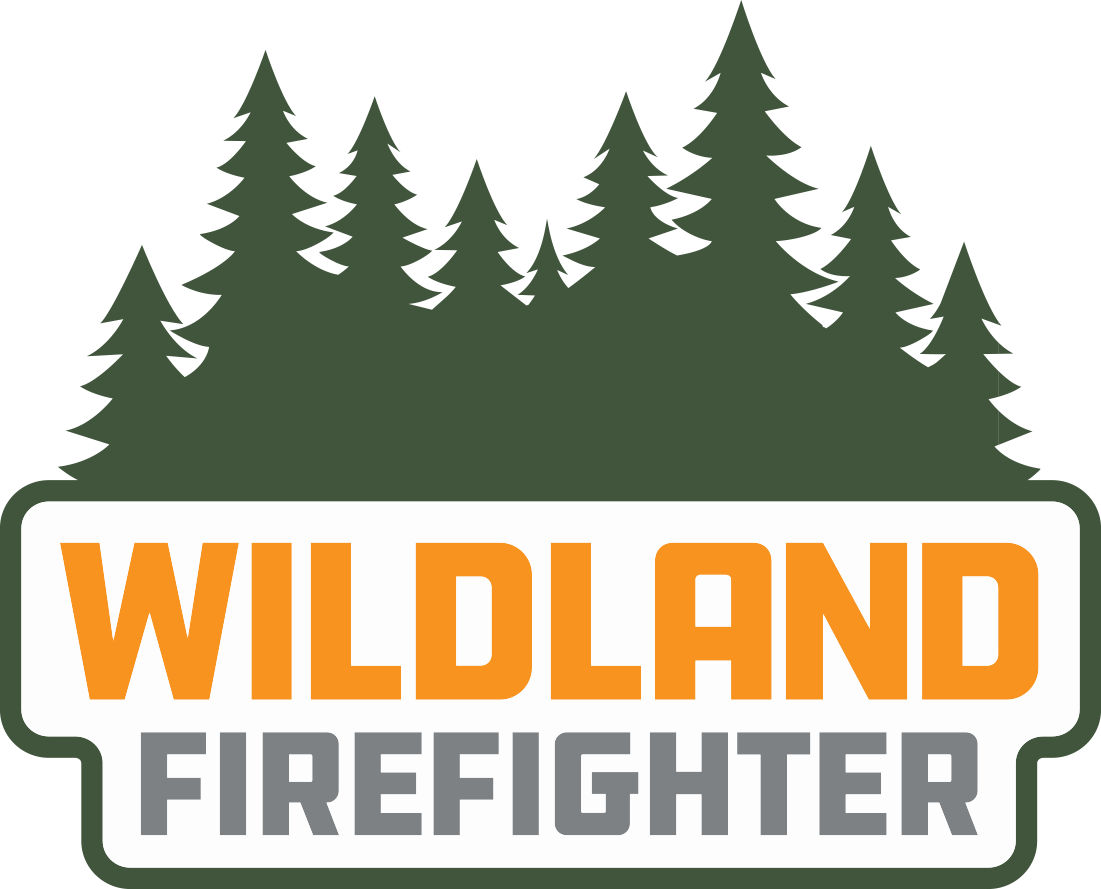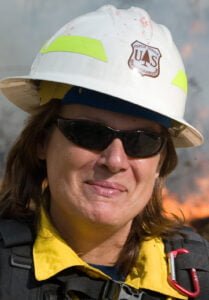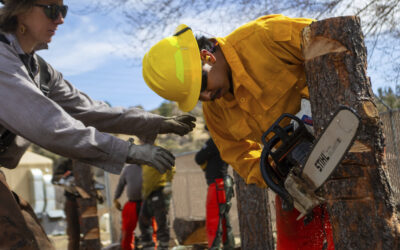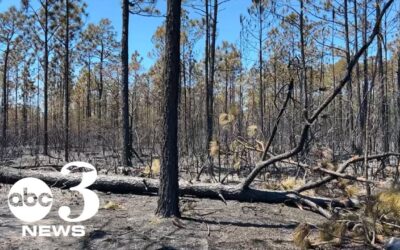When I first started firefighting as a seasonal with the Forest Service, my only stress had to do with my physical stamina to keep up with the crew and making sure my boots weren’t causing me any hot spots. Did I have enough water? Should I double lunch today?
By the time I was running a crew, my concerns had to include the firefighters I was responsible for. Now, in addition to my physical condition and my food and water, I had to be concerned for those I was supervising. What about work/rest? Back when I was running a crew or engine, we didn’t even concern ourselves with the work/rest ratio. I’m sure many of you remember working 24 or even 48 hours straight. That’s how we got into the 16 hour maximum shift policy. Because in the old days we didn’t concern ourselves with the need for proper rest in order to make good decisions, maintain performance and keep ourselves alive. But I digress…
In those early days for me, even as a supervisor my stress level wasn’t great. But back in those days our fire seasons weren’t that long. Depending on where you worked, fire season might only last a few months. After fire season ended with the monsoon rains, cooler temperatures or the first snow, we went back to our project work such as fuels projects and prescribed burning. Maybe we went back to school or took off to spend the winter on a beach in Thailand. Yea, it wasn’t bad back then. We could deal with anything for a couple months. We knew in a short while the fire environment would change and we’d be back to a shorter work day and only 5 day work weeks. But those days are long gone.
Our fire seasons are now literally year round. Unless there’s snow on the ground, we have the potential for a wildfire. You are living the “new normal”. You are responding to fires all winter in Arizona, Colorado, Wyoming, Nebraska, Texas, California, etc. It’s not like it used to be. The fires have changed. But have we changed?
We’ve changed by increasing the number of permanent employees. We’re converting seasonals to permanent fulltime employees. And rather than firefighters returning to school or taking a job as a lift operator at the local ski area after the season is over, they’re now working 16s, for months longer than we ever used to. What’s changed is we’ve increased the number of firefighters being impacted by the unsustainable pace of our current fire climate
Families are impacted too. Birthdays are missed and anniversaries are only remembered while hiking out of a dusty canyon far away from family and loved ones. Relationships are frayed and everyone is affected whether on the line, in camp or back home. So what? What are we going to do about it?
Twenty years ago when I was a District FMO/Division Chief, I had the old work attitude that I grew up with. Which was, you work during fire season and play in the winter. When one of my Captains requested a few days off in the middle of fire season to attend a wedding, I was incredulous. Days off during fire season? What? You work in fire season, you don’t go play. There will be plenty of time to take off when the snow is on the ground this winter. It took a thoughtful Captain to sit me down and explain why it was so important for him to have a four-day weekend off and attend a family wedding smack in the middle of fire season. That was a turning point for me. I had to think about what he said. It was like a veil had been lifted from my eyes.
I started recognizing how we needed to take better care of ourselves and our folks. I understood that as wildland firefighters, our divorce rate, overuse of alcohol and our horrible suicide rate is a tragedy with no end in sight. Our world, our fire seasons are not like what I had grown up with. So what? What do we do about it?
Our agencies are developing protocols, support services, medical and counseling services, etc. And those are all good and important. But those aren’t the whole answer. Just like there is no one easy answer to the new large mega-fires. There is also no one easy answer to address our employee stress. And rather than critical incident stress, what we have is chronic incident stress, based on the long grind of 16-hour days… day after day, month after month, year after year. We watch as we lose co-workers to suicide, alcoholism, aviation accidents, burn overs and snags.
How does this chronic stress affect us? Have you ever gotten really mad at your boss or co-worker? I mean over the top mad. Ever written an email that you shouldn’t have? Had too much to drink because a co-worker was killed on an incident? How about get mad at your spouse or kids? There are lots of ways we react to the stress. I’m no expert on the topic. But I’ve had my own inappropriate and negative reactions on the job. Maybe I’ll include some of those reactions in another, story but for now let’s just say I’ve done a poor job of managing my own chronic stress.
Most of my stories include leadership lessons with humorous bits from incidents that have happened to me over a 45-plus year career in the fire service. But this topic doesn’t have room for humor. It’s as serious as a heart attack. What can you as a firefighter do? Captain, BC, Chief? We all have a role to play. Those of you who know me, also know I’m not a soft touch. I’ve been a tough supervisor and fire leader. I always felt like I had to be. But the world has changed. Our workforce is being driven at a rate that it was never intended for. We’re over-revving our workforce engine.
I have no silver bullet? I don’t have the one right answer to all our chronic incident stress issues? But I know we need to be aware of the stresses on our employees and their families. You already know it. You see it. You hear what your wife or husband or significant other says. Our co-workers and supervisors and subordinates are all feeling the same way and experiencing the same chronic incident stress.
How about we start making an extra effort to look out for each other? As supervisors, maybe we just take a breath and listen to our folks. I’m not suggesting supervisors become lax at their job. Of course we need to hold our personnel accountable for their performance. But let’s start exercising a little emotional maturity and recognizing what six or eight months of fire camps, long shifts, driving across country, dealing with inexperienced agency administrators, empty seats on the engine or crew, unrealistic expectations from the organization and most importantly, what the absence from home is doing to our friends and co-workers. This is no time to be like my supervisor in the story, “Shut Up And Dig”. This is the time to be a smart supervisor and co-worker.
You can listen to stories on this topic at BobbieOnFire.com, episode #29, “It’s All About You – Coping With Job Fatigue”
Coming Soon
Both Sides of the Fire Line is Bobbie Scopa’s uplifting memoir of bravely facing the heat of fierce challenges, professionally and personally. It’s due out in September and available for preorder now.
Order from Amazon Order from Barnes & Noble

 Bobbie Scopa started her career as a seasonal firefighter in 1974. After graduating from Arizona State University, she went on to work in fire and natural resource management. Eventually she left the wildand agencies to work full time for a structure fire department. She finished her Masters in Forestry at NC State then went back to the US Forest Service and BLM eventually becoming the Assistant Regional Fire Director in Region 6. Bobbie has spent many years working as a type 1 and 2 Operations Section Chief. You can listen to Bobbie tell audio stories from her long career at BobbieOnFire.com. She has also recently completed her memoir titled “Both Sides Of The Fire Line”. It will be available through Chicago Review Press late summer of 2022.
Bobbie Scopa started her career as a seasonal firefighter in 1974. After graduating from Arizona State University, she went on to work in fire and natural resource management. Eventually she left the wildand agencies to work full time for a structure fire department. She finished her Masters in Forestry at NC State then went back to the US Forest Service and BLM eventually becoming the Assistant Regional Fire Director in Region 6. Bobbie has spent many years working as a type 1 and 2 Operations Section Chief. You can listen to Bobbie tell audio stories from her long career at BobbieOnFire.com. She has also recently completed her memoir titled “Both Sides Of The Fire Line”. It will be available through Chicago Review Press late summer of 2022.

